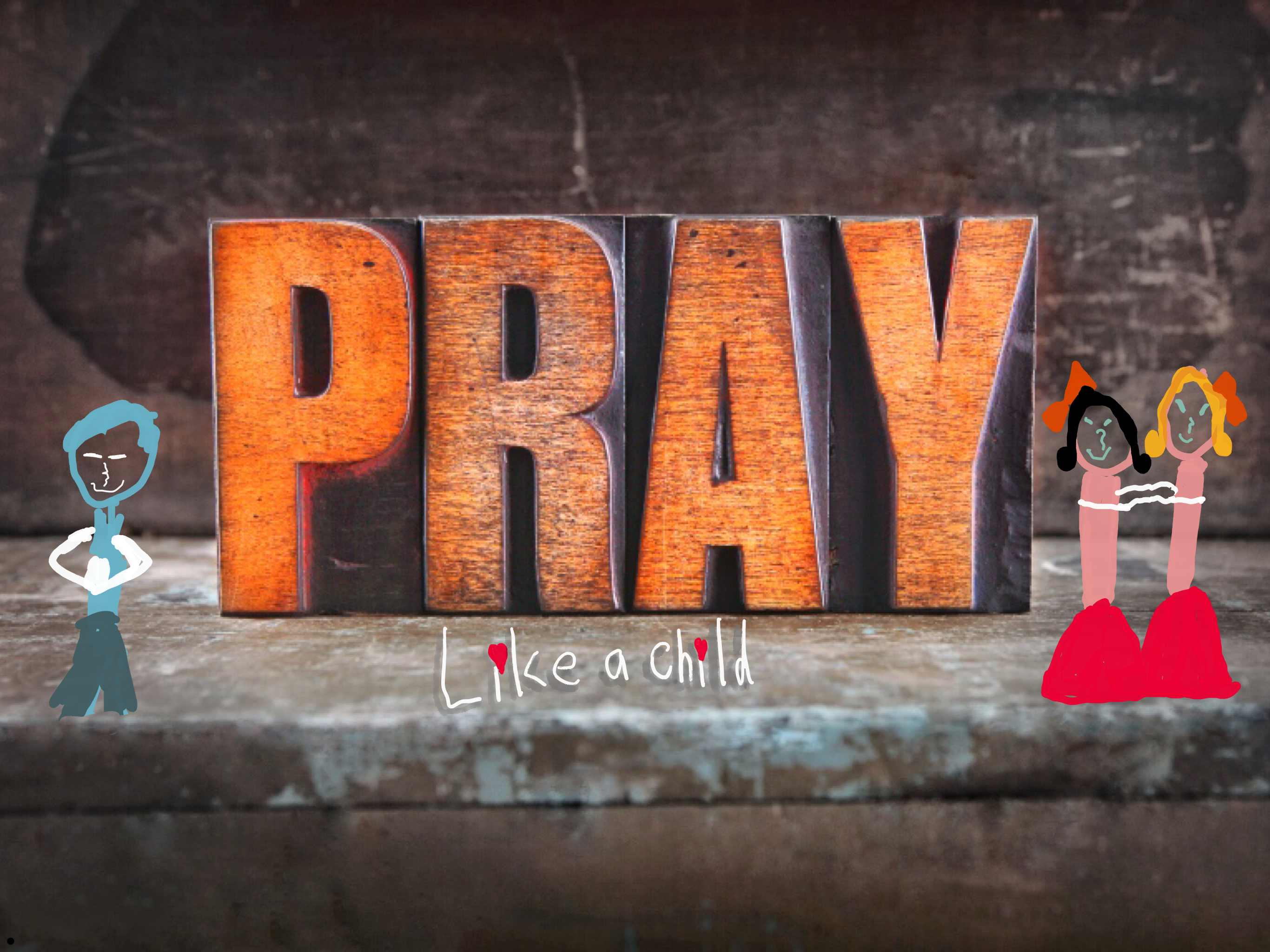
Week 5 Study Guide
Mark 10:13-16 (ESV)
13 And they were bringing children to him that he might touch them, and the disciples rebuked them. 14 But when Jesus saw it, he was indignant and said to them, “Let the children come to me; do not hinder them, for to such belongs the kingdom of God. 15 Truly, I say to you, whoever does not receive the kingdom of God like a child shall not enter it.” 16 And he took them in his arms and blessed them, laying his hands on them.
When a young child is hurt, or in some kind of trouble, what is the first thing they do? They cry out for the closest parent, “Mom! Mom! Mom! Dad! Dad! Dad!” They may have no idea how bad the situation or injury is, but it always sounds like a DEFCON one emergency. This alarm can be the result of physical injury, fear of something, emotional distress, or maybe they just can’t find their favorite blanket or stuffed animal. They do not take the time, nor do they have the ability, to assess the level of emergency and then cry out with the appropriate volume and tonal distress. They just know something is wrong and they need help immediately.
It is not until we mature that we begin to assess our level of need and then request assistance with what we think is an appropriate level of desperation. In fact, it is ironic that as we get older we tend to minimize, or down play, the amount of real need we have. We try to hold back the tears; we don’t want others to see us too upset. We tell them everything is fine. Jesus tells us that God, our Father, wants just the opposite. God wants us to come to him like a child, not like an adult. God wants us to let Him know even the tiniest things that are bothering us. He does not want us to hold back our despair, our pain, or our hurt. He does not expect us to pray to Him with the “appropriate” level of concern or emotion. He wants us to freely and openly cry out to Him for everything and anything.
Matthew 14:29-31 (ESV):
29 He said, “Come.” So Peter got out of the boat and walked on the water and came to Jesus. 30 But when he saw the wind, he was afraid, and beginning to sink he cried out, “Lord, save me.” 31 Jesus immediately reached out his hand and took hold of him, saying to him, “O you of little faith, why did you doubt?”
In this event Peter indeed cries out to Jesus like a child. Notice that Peter does not even try to save himself first. Remember, Peter was a professional fisherman and lived his whole life near the water. It is most probable that he knew how to swim. The passage says that he was only “beginning” to sink and he immediately cried out for Jesus to save him. Peter did not first try to save himself and he did not take the time to assess whether he really needed to cry out. As soon as there was the slightest inkling that something was not right he cried out. This is exactly what God wants us to do as his disciples. Don’t wait until we are sure that we are drowning before we cry out to God in prayer. If you even begin to feel like you are sinking, cry out to your Father God for help.
Mark 14:35-36 (ESV):
35 And going a little farther, he fell on the ground and prayed that, if it were possible, the hour might pass from him. 36 And he said, “Abba, Father, all things are possible for you. Remove this cup from me. Yet not what I will, but what you will.”
This is what Jesus cries out to God during the last week of his life on earth. He knows what is coming (his crucifixion) and is in despair. Jesus cries out to God in prayer, he asks for God to remove the excruciatingly painful task that he knows is coming his way. Jesus already knows what needs to happen; he knows that his task cannot be taken away (he is part of the Godhead). Like a child who knows that his punishment is coming and nothing can change it, he still cries out in despair and distress. Jesus is modeling what he said, “receive the kingdom of God like a child.” He did not hold back from crying out to God even though he knew what was going to happen. Unedited, he poured out what was on his heart.
*For the following Study questions please refer to Psalm 69 (ESV)
Study and Reflection Questions:
1. Was there a time in your life that you cried out (or should have cried out) to God? If comfortable, share about this time.
2. How does David describe his predicament throughout Psalm 69?
3. How do verses 30-36 change the tone of the Psalm? How can David’s example help us to cry out to our Father in prayer?
4. Why do you think people choose “not” to cry out to our Father? Is there anything that stops you from crying out to your Father? Explain.
5. Psalm 69 is a prayer of vulnerability. How does vulnerability help us cry out to God?
6. Consider your own brokenness and sin before the Lord. “Cry out” to your Father to be made whole and to experience His love and forgiveness.
7. We should also cry out to our Father in prayer for our family, friends, and world. Take time this week to bring your family, friends, and the world’s brokenness and sin before God.
